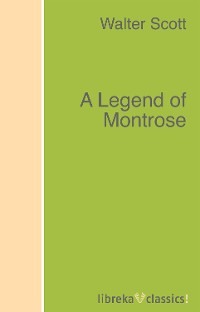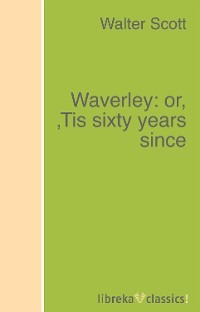
Полная версия
Guy Mannering - Complete


Titel: Guy Mannering — Complete
von Oliver Goldsmith, Samuel Pepys, William Dean Howells, John Burroughs, William Harmon Norton, L. Mühlbach, Franklin Knight Lane, Walter Pater, Jonathan Swift, Augusta J. Evans, Trumbull White, Kathleen Thompson Norris, Matthew Arnold, Charles W. Colby, Shakespeare, James Fenimore Cooper, D. H. Lawrence, James Joyce, Ada Cambridge, Philip E. Muskett, Catherine Helen Spence, Rolf Boldrewood, Ernest Scott, Fergus Hume, H. G. Wells, Victor [pseud.] Appleton, Roald Amundsen, Max Simon Nordau, Henry David Thoreau, E. Phillips Oppenheim, Richard Wagner, Franz Liszt, Charlotte Mary Yonge, Charles Henry Eden, Charles Babbage, T. R. Malthus, Unknown, Joseph Ernest Morris, Robert Southey, Isabella L. Bird, Charles James Fox, Thomas Hariot, Cyrus Thomas, Bart Haley, Christopher Morley, Edgar Saltus, Marie Corelli, Edmund Lester Pearson, Robert Browning, John Aubrey, Benjamin Nathaniel Bogue, John McElroy, John Galsworthy, Henry James, Hamilton Wright Mabie, Mina Benson Hubbard, Elizabeth Cleghorn Gaskell, John Keble, Henry Lindlahr, Richard Henry Dana, Annie Wood Besant, Immanuel Kant, John Habberton, Baron Edward John Moreton Drax Plunkett Dunsany, T. B. Ray, Isabel Ecclestone Mackay, Frank C. Haddock, William John Locke, baron Arthur Léon Imbert de Saint-Amand, Ralph Centennius, United States, Library of Congress. Copyright Office, James Otis, George Hartmann, Sir Arthur Conan Doyle, George Gissing, John Henry Tilden, Thomas Wright, Frederick Samuel Dellenbaugh, Anonymous, J. Clontz, David Hume, Margot Asquith, Elmer Ulysses Hoenshel, Byron J. Rees, Lida B. McMurry, Georges Duhamel, Ramsay Muir, Edith Wharton, Charles Sturt, Lola Ridge, J. M. Stone, Annie Payson Call, Grant Allen, kniaz Petr Alekseevich Kropotkin, Steve Solomon, Isabel Moser, Aleksandr Sergeevich Pushkin, Horace W. C. Newte, Charles Darwin, Maurice Maeterlinck, Walter Bagehot, Henri Bergson, George Randolph Chester, John S. C. Abbott, L. Frank Baum, William T. Sherman, Philip Henry Sheridan, Friedrich Wilhelm Nietzsche, Ambrose Bierce, Ulysses S. Grant, F. Scott Fitzgerald, Alfred Lichtenstein, Abbot of Nogent-sous-Coucy Guibert, Nellie L. McClung, Alice Caldwell Hegan Rice, E. Nesbit, Henri Barbusse, J. M. Synge, Frank Norris, Louis Hémon, Henry Van Dyke, Thomas Guthrie Marquis, Susanna Moodie, Frank Bigelow Tarbell, René Descartes, Kirk Munroe, Francis Hopkinson Smith, Edna St. Vincent Millay, Talbot Mundy, George Meredith, Clemens Brentano, James De Mille, James Allen, Norman Douglas, Bolton Hall, Arthur Christopher Benson, James Oliver Curwood, Frank Jardine, Bertram Lenox Simpson, Freiherr von Justus Liebig, Cyril G. Hopkins, Mary Eleanor Wilkins Freeman, Evelyn Scott, Charles Monroe Sheldon, George Berkeley, Steven Sills, Sara Jeannette Duncan, Jules Verne, Irvin S. Cobb, Zane Grey, August von Kotzebue, John Addington Symonds, Marjorie Allen Seiffert, J. B. Bury, William Makepeace Thackeray, Jules Renard, Susan Coolidge, Huguette Bertrand, Mrs. C. F. Fraser, Ottilie A. Liljencrantz, William Morton Payne, Henry Adams, T. S. Arthur, Orison Swett Marden, T. S. Ackland, Anthony Trollope, graf Leo Tolstoy, Robert Smythe Hichens, Émile Gaboriau, Wilkie Collins, Charles Reade, Horace Walpole, Jennette Lee, Thomas Dykes Beasley, Inez Haynes Gillmore, L. H. Woolley, John Francis Davis, James B. Stetson, William Day Simonds, James O'Meara, Almira Bailey, Cuthbert Bede, Voltaire, Percy Bysshe Shelley, William Bennett Munro, Sir Richard Francis Burton, Horatio Alger, Paul Verlaine, Samuel Vaknin, William Ralph Inge, Madame de Staël, J. Hector St. John de Crèvecoeur, L. A. Abbott, F. Colburn Adams, John S. Adams, Thornton W. Burgess, Glenn D. Bradley, Eugen Neuhaus, Arthur E. Knights, Bret Harte, Maturin Murray Ballou, Jane G. Austin, Samuel Johnson, Frederick Niecks, Stephen Leacock, Suelette Dreyfus, Stéphane Mallarmé, Lyndon Orr, William Le Queux, Mary Wollstonecraft Shelley, Jeannie Gunn, Jean François Regnard, John Ruskin, A. I. Kuprin, Pierre Louÿs, George Barr McCutcheon, John Munro, Holman Day, William Stearns Davis, John Richardson, Mary Jane Holmes, Oliver Wendell Holmes, Finley Peter Dunne, C. J. Dennis, Ethel Sybil Turner, Julius Wellhausen, Arnold Bennett, Harold Bell Wright, Guðmundur Kamban, Charles Stuart Calverley, A. E. W. Mason, Charles Rivière Dufresny, David Starr Jordan, Wallace Irwin, J. W. Wright, Thomas Hardy, United States Rubber Company, Helen Reimensnyder Martin, William Fayette Fox, Lewis Carroll, Anna Katharine Green, Shell Union Oil Corporation, Louisa May Alcott, Theocritus, of Phlossa near Smyrna Bion, Moschus, Bertrand Russell, Guy de Maupassant, Henrik Ibsen, James Whitcomb Riley, Josephine Lawrence, Pierre Loti, Harry Alverson Franck, Albert Payson Terhune, Harold MacGrath, G. A. Henty, Harriet A. Adams, John Lothrop Motley, H. E. Bird, Joseph Crosby Lincoln, Michel Baron, Gene Stratton-Porter, James Clerk Maxwell, Norman Lindsay, Edward Lasker, Margaret Penrose, S. R. Crockett, Austin Hall, Homer Eon Flint, Various, Clarence Edward Mulford, Upton Sinclair, John Andreas Widtsoe, Thomas Bulfinch, David Graham Phillips, John Kendrick Bangs, Edmond Jaloux, Emile Littré, 13th cent. de Boron Robert, Samuel Butler, James Huneker, Jessie Graham [pseud.] Flower, St. George Rathborne, Charles Wesley Emerson, Winston Churchill, Edith Bancroft, Lloyd Osbourne, Jack London, Lyman Abbott, Belle K. Abbott, Sinclair Lewis, H. W. Conn, Ludwig Thoma, Sir Walter Scott, August Strindberg, Thomas Chapais, Ernest Giles, David Wynford Carnegie, Zoeth Skinner Eldredge, Eusebius Joseph Molera, C. C. Andrews, Robert Barr, John Hendricks Bechtel, Robert W. Chambers, Alice B. Emerson, Anna M. Galbraith, Laura Lee Hope, L. T. Meade, Harry Steele Morrison, Frank Gee Patchin, Louise Clarke Pyrnelle, William MacLeod Raine, Roy Rockwood, Edward Stratemeyer, Louis Tracy, Matthew White, Leonardo da Vinci, Albert Einstein, Clarence Young, Ludwig Leichhardt, Arthur B. Reeve, Mrs. Georgie Sheldon, Samuel Hopkins Adams, George Washington, John Adams, Thomas Jefferson, James Madison, James Monroe, John Quincy Adams, Andrew Jackson, Martin Van Buren, John Tyler, James K. Polk, Zachary Taylor, Millard Fillmore, Franklin Pierce, James Buchanan, Abraham Lincoln, Andrew Johnson, Rutherford Birchard Hayes, Chester Alan Arthur, Grover Cleveland, Benjamin Harrison, William McKinley, Theodore Roosevelt, William H. Taft, Woodrow Wilson, Warren G. Harding, Calvin Coolidge, Herbert Hoover, Franklin Delano Roosevelt, Harry S. Truman, Dwight D. Eisenhower, John F. Kennedy, Lyndon B. Johnson, Richard M. Nixon, Gerald R. Ford, Jimmy Carter, Ronald Reagan, George Bush, William Jefferson Clinton, George W. Bush, United States. Presidents., Bjørnstjerne Bjørnson, Rex Ellingwood Beach, Euripides, Henry C. Northam, Mary Raymond Shipman Andrews, Alice Brown, Mary Stewart Doubleday Cutting, Elizabeth Garver Jordan, Elizabeth Stuart Phelps, Mary Heaton Vorse, Edith Wyatt, Bernard Shaw, Georg Büchner, Mrs. Alfred Gatty, Henry Mackenzie, Thomas Henry Huxley, Leonard Huxley, William Hazlitt, Arthur William Dunn, Baroness Emmuska Orczy Orczy, Standish O'Grady, J. M. Barrie, J. G Patterson, Alexandre Dumas père, Alphonse Daudet, Ignatius Donnelly, Henry A. Shute, Walter Savage Landor, E. J. Banfield, George Sand, Gustave Flaubert, William James, Charles Klein, J. Storer Clouston, John Fox, John Stuart Mill, Laurence Hope, Andrew Lang, Vaughan Kester, Molière, Baron George Gordon Byron Byron, Viscount Henry St. John Bolingbroke, Ben Jonson, Émile Zola, Thomas Stevens, Carl Ewald, Anatole France, Edward J. Wickson, Henry M. Stanley, Nicolas Boileau Despréaux, Selma Lagerlöf, Richard Marsh, W. B. Yeats, Ella Wheeler Wilcox, Henry Stevens, Gouverneur Morris, Kaiten Nukariya, Henry Rider Haggard, Frances Boyd Calhoun, George Crabbe, Bertram Waldrom Matz, Joseph A. Altsheler, Petronius Arbiter, F. Marion Crawford, Charles James Lever, John Payne, Harlan Page Halsey, Karl Philipp Moritz, Henry Cruse Murphy, Vingie E. Roe, Mabel C. Hawley, Walter Cox Green, Henry Fielding, Jeffery Farnol, Laura Elizabeth Howe Richards, Howard Roger Garis, Lilian Garis, Carolyn Wells, G. K. Chesterton, Mungo Park, Theodore Dreiser, Arthur Cheney Train, Edward Payson Roe, Robert Louis Stevenson, Asa Gray, Jean de La Fontaine, Frances Hodgson Burnett, Mary Noailles Murfree, Wolfgang Amadeus Mozart, J. S. Fletcher, Elinor Glyn, Jacob Grimm, Wilhelm Grimm, Kenneth Grahame, Wassily Kandinsky, Theodor Fontane, S. Baring-Gould, Johann Wolfgang von Goethe, E. Cherubini, Brett Page, Dom, John Oxley, William F. Drannan, Mark Rutherford, Adelbert von Chamisso, L. M. Montgomery, Edward John Eyre, Dorothy Canfield Fisher, F. H. King, Justin McCarthy, Myrtle Reed, Francis Grose, W. H. Hudson, Andrew Kennedy Hutchison Boyd, Count Anthony Hamilton, Horace, John Brown, Katherine Cecil Thurston, Victor Hugo, Henry Sweet, Robert Hillyer, Amy Brooks, Jean-Jacques Rousseau, Brillat-Savarin, Thomas Bailey Aldrich, Henry Wadsworth Longfellow, Grace M. Remick, Georg Ebers, Francis Bacon, Juliana Horatia Gatty Ewing, Ralph Victor, Sir Francis Darwin, Heinrich Heine, Thomas Sherlock, William Ferneley Allen, Henry Harland, Khalil Gibran, Lady Florence Henrietta Fisher Darwin, Sir William Petty, Juliet Helena Lumbard James, Max Pearson Cushing, Marion Harland, Edward Francis Adams, E. Pauline Johnson, John Drinkwater, James Edward Talmage, Margaret Sidney, William Allen White, Gertrude Page, Michel de Montaigne, Alleyne Ireland, Charles E. Morris, Martinovitsné Kutas Ilona, Ernst Lehrs, Richard Harding Davis, Robert Seymour, Anna Bonus Kingsford, Edmund Burke, Lightheart, Brother of the Resurrection Lawrence, Joseph Conrad, Lucia Prudence Hall Woodbury, Virginia Woolf, Ellis Wynne, Eustace Hale Ball, A. A. Milne, George MacDonald, Arthur Herbert Leahy, W. E. B. Du Bois, Nathaniel H. Bishop, Charles Kingsley, Mark Twain, A. Frank [pseud.] Pinkerton, Alice Turner Curtis, Sax Rohmer, Arthur Scott Bailey, L. Lamprey, Honoré de Balzac, George Durston, William Osmer, Theodore Ayrault Dodge, Prince De Joinville, John Alexander Gunn, Henry Inman, A. E. Housman, Ivan Sergeevich Turgenev, Henry Edward Krehbiel, H. E. Marshall, Arabella B. Buckley, Gabrielle E. Jackson, Sarah J. Eddy, Sarah J. Richardson, Peter B. Kyne, Mary C.E. Wemyss, Ludwig Wittgenstein, Katherine Chandler, baron Ludvig Holberg, Maurice Henry Hewlett, Booth Tarkington, Amelia Edith Huddleston Barr, W. W. Jacobs, W. G. Ivens, Daniel Young, Sam Williams, George William Russell, Durant Drake, Rudyard Kipling, Leonid Nikolayevich Andreyev, William Westgarth, Jane Andrews, Charles Herbert Sylvester, Clarence Budington Kelland, W.B. Laughead, Conrad Ferdinand Meyer, Stephen Palfrey Webb, William John Wills, Thomas Chandler Haliburton, Charles Dudley Warner, Fanny Burney, Edward Sylvester Ellis, John Bunyan, Jeremiah Chaplin, Ouida, Nora Archibald Smith, Kate Douglas Smith Wiggin, Herbert Spencer, Ellen Velvin, John Thomas Simpson, Eleanor H. Porter, James Richard Joy, Donald E. Keyhoe, Steven E. Jones, Mary E. Blain, Mary H. Kingsley, E. Edouard Tavernier, Algernon Blackwood, Miguel de Cervantes Saavedra, David Cory, Lilyan Stratton, A. E. J. Rawlinson, Marie L. Shedlock, [pseud.] Frances Little, Richard Savage, Lafcadio Hearn, T. S. Eliot, Henry Seton Merriman, William Morris, Elizabeth, Lady Barker, Robert S. Carroll, William Lyon Phelps, Sara Yorke Stevenson
ISBN 978-3-7429-5826-6
Alle Rechte vorbehalten.
Es ist ohne vorherige schriftliche Erlaubnis nicht gestattet, dieses Werk im Ganzen oder in Teilen zu vervielfältigen oder zu veröffentlichen.
GUY MANNERING, By Sir Walter Scott
GUY MANNERING
BY SIR WALTER SCOTT
../Images/cover.jpg (297K)
spines.jpg (178K)
titlepage.jpg (66K)
GUY MANNERING
OR
THE ASTROLOGER
LIST OF ILLUSTRATIONS.
VOLUME I. THE DEPARTURE OF THE GYPSIES----Drawn by Clark Stanton, Etched by C. de Billy ELLANGOWAN CASTLE----Drawn by John MacWhirter, Etched by Alex. Ansted CARLAVEROCK CASTLE----Photo-Etching by John Andrew and Son "PRODIGIOUS!"---Original Etching by George Cruikshank THE CURE OF MEG MERRILIES----Drawn and Etched by C. O. Murray DOMINIE SAMPSON IN THE LIBRARY----Drawn and Etched by C. O. Murray DANDIE DINMONT AT HOME----Drawn by Steel Gourlay, Etched by H. Macbeth Raeburn VOLUME II. THE PARTY AT COLONEL MANNERING'S---Drawn by Herdman, Etched by H. Manesse THE ATTACK OF THE SMUGGLERS---Drawn and Etched by H. Moyer Smith PLEYDELL AS KING----Original Etching by R. W. Macbeth ON THE SOLWAY FRITH----Original Etching by F. S. Walker "GAPE, SINNER, AND SWALLOW!"---Original Etching by George Cruikshank MEG MERRILIES DIRECTS BERTRAM TO THE CAVE----Etched by C. O. Murray THE CAPTURE OF DIRK HATTERAICK---Drawn by MacDonald, Etched by Courtry
frontpiece.jpg (123K)
Full Size
VOLUME I
INTRODUCTION
The Novel or Romance of Waverley made its way to the public slowly, of course, at first, but afterwards with such accumulating popularity as to encourage the Author to a second attempt. He looked about for a name and a subject; and the manner in which the novels were composed cannot be better illustrated than by reciting the simple narrative on which Guy Mannering was originally founded; but to which, in the progress of the work, the production ceased to bear any, even the most distant resemblance. The tale was originally told me by an old servant of my father's, an excellent old Highlander, without a fault, unless a preference to mountain dew over less potent liquors be accounted one. He believed as firmly in the story as in any part of his creed.
A grave and elderly person, according to old John MacKinlay's account, while travelling in the wilder parts of Galloway, was benighted. With difficulty he found his way to a country seat, where, with the hospitality of the time and country, he was readily admitted. The owner of the house, a gentleman of good fortune, was much struck by the reverend appearance of his guest, and apologised to him for a certain degree of confusion which must unavoidably attend his reception, and could not escape his eye. The lady of the house was, he said, confined to her apartment, and on the point of making her husband a father for the first time, though they had been ten years married. At such an emergency, the laird said, he feared his guest might meet with some apparent neglect.
'Not so, sir,' said the stranger; 'my wants are few, and easily supplied, and I trust the present circumstances may even afford an opportunity of showing my gratitude for your hospitality. Let me only request that I may be informed of the exact minute of the birth; and I hope to be able to put you in possession of some particulars which may influence in an important manner the future prospects of the child now about to come into this busy and changeful world. I will not conceal from you that I am skilful in understanding and interpreting the movements of those planetary bodies which exert their influences on the destiny of mortals. It is a science which I do not practise, like others who call themselves astrologers, for hire or reward; for I have a competent estate, and only use the knowledge I possess for the benefit of those in whom I feel an interest.' The laird bowed in respect and gratitude, and the stranger was accommodated with an apartment which commanded an ample view of the astral regions.
The guest spent a part of the night in ascertaining the position of the heavenly bodies, and calculating their probable influence; until at length the result of his observations induced him to send for the father and conjure him in the most solemn manner to cause the assistants to retard the birth if practicable, were it but for five minutes. The answer declared this to be impossible; and almost in the instant that the message was returned the father and his guest were made acquainted with the birth of a boy.
The Astrologer on the morrow met the party who gathered around the breakfast table with looks so grave and ominous as to alarm the fears of the father, who had hitherto exulted in the prospects held out by the birth of an heir to his ancient property, failing which event it must have passed to a distant branch of the family. He hastened to draw the stranger into a private room.
'I fear from your looks,' said the father, 'that you have bad tidings to tell me of my young stranger; perhaps God will resume the blessing He has bestowed ere he attains the age of manhood, or perhaps he is destined to be unworthy of the affection which we are naturally disposed to devote to our offspring?'
'Neither the one nor the other,' answered the stranger; 'unless my judgment greatly err, the infant will survive the years of minority, and in temper and disposition will prove all that his parents can wish. But with much in his horoscope which promises many blessings, there is one evil influence strongly predominant, which threatens to subject him to an unhallowed and unhappy temptation about the time when he shall attain the age of twenty-one, which period, the constellations intimate, will be the crisis of his fate. In what shape, or with what peculiar urgency, this temptation may beset him, my art cannot discover.'
'Your knowledge, then, can afford us no defence,' said the anxious father, 'against the threatened evil?'
'Pardon me,' answered the stranger, 'it can. The influence of the constellations is powerful; but He who made the heavens is more powerful than all, if His aid be invoked in sincerity and truth. You ought to dedicate this boy to the immediate service of his Maker, with as much sincerity as Samuel was devoted to the worship in the Temple by his parents. You must regard him as a being separated from the rest of the world. In childhood, in boyhood, you must surround him with the pious and virtuous, and protect him to the utmost of your power from the sight or hearing of any crime, in word or action. He must be educated in religious and moral principles of the strictest description. Let him not enter the world, lest he learn to partake of its follies, or perhaps of its vices. In short, preserve him as far as possible from all sin, save that of which too great a portion belongs to all the fallen race of Adam. With the approach of his twenty-first birthday comes the crisis of his fate. If he survive it, he will be happy and prosperous on earth, and a chosen vessel among those elected for heaven. But if it be otherwise--' The Astrologer stopped, and sighed deeply.
'Sir,' replied the parent, still more alarmed than before, 'your words are so kind, your advice so serious, that I will pay the deepest attention to your behests; but can you not aid me farther in this most important concern? Believe me, I will not be ungrateful.'
'I require and deserve no gratitude for doing a good action,' said the stranger, 'in especial for contributing all that lies in my power to save from an abhorred fate the harmless infant to whom, under a singular conjunction of planets, last night gave life. There is my address; you may write to me from time to time concerning the progress of the boy in religious knowledge. If he be bred up as I advise, I think it will be best that he come to my house at the time when the fatal and decisive period approaches, that is, before he has attained his twenty-first year complete. If you send him such as I desire, I humbly trust that God will protect His own through whatever strong temptation his fate may subject him to.' He then gave his host his address, which was a country seat near a post town in the south of England, and bid him an affectionate farewell.
The mysterious stranger departed, but his words remained impressed upon the mind of the anxious parent. He lost his lady while his boy was still in infancy. This calamity, I think, had been predicted by the Astrologer; and thus his confidence, which, like most people of the period, he had freely given to the science, was riveted and confirmed. The utmost care, therefore, was taken to carry into effect the severe and almost ascetic plan of education which the sage had enjoined. A tutor of the strictest principles was employed to superintend the youth's education; he was surrounded by domestics of the most established character, and closely watched and looked after by the anxious father himself.
The years of infancy, childhood, and boyhood passed as the father could have wished. A young Nazarene could not have been bred up with more rigour. All that was evil was withheld from his observation: he only heard what was pure in precept, he only witnessed what was worthy in practice.
But when the boy began to be lost in the youth, the attentive father saw cause for alarm. Shades of sadness, which gradually assumed a darker character, began to over-cloud the young man's temper. Tears, which seemed involuntary, broken sleep, moonlight wanderings, and a melancholy for which he could assign no reason, seemed to threaten at once his bodily health and the stability of his mind. The Astrologer was consulted by letter, and returned for answer that this fitful state of mind was but the commencement of his trial, and that the poor youth must undergo more and more desperate struggles with the evil that assailed him. There was no hope of remedy, save that he showed steadiness of mind in the study of the Scriptures. 'He suffers, continued the letter of the sage,' from the awakening of those harpies the passions, which have slept with him, as with others, till the period of life which he has now attained. Better, far better, that they torment him by ungrateful cravings than that he should have to repent having satiated them by criminal indulgence.'
The dispositions of the young man were so excellent that he combated, by reason and religion, the fits of gloom which at times overcast his mind, and it was not till he attained the commencement of his twenty-first year that they assumed a character which made his father tremble for the consequences. It seemed as if the gloomiest and most hideous of mental maladies was taking the form of religious despair. Still the youth was gentle, courteous, affectionate, and submissive to his father's will, and resisted with all his power the dark suggestions which were breathed into his mind, as it seemed by some emanation of the Evil Principle, exhorting him, like the wicked wife of Job, to curse God and die.
The time at length arrived when he was to perform what was then thought a long and somewhat perilous journey, to the mansion of the early friend who had calculated his nativity. His road lay through several places of interest, and he enjoyed the amusement of travelling more than he himself thought would have been possible. Thus he did not reach the place of his destination till noon on the day preceding his birthday. It seemed as if he had been carried away with an unwonted tide of pleasurable sensation, so as to forget in some degree what his father had communicated concerning the purpose of his journey. He halted at length before a respectable but solitary old mansion, to which he was directed as the abode of his father's friend.
The servants who came to take his horse told him he had been expected for two days. He was led into a study, where the stranger, now a venerable old man, who had been his father's guest, met him with a shade of displeasure, as well as gravity, on his brow. 'Young man,' he said, 'wherefore so slow on a journey of such importance?' 'I thought,' replied the guest, blushing and looking downward,' that there was no harm in travelling slowly and satisfying my curiosity, providing I could reach your residence by this day; for such was my father's charge.' 'You were to blame,' replied the sage, 'in lingering, considering that the avenger of blood was pressing on your footsteps. But you are come at last, and we will hope for the best, though the conflict in which you are to be engaged will be found more dreadful the longer it is postponed. But first accept of such refreshments as nature requires to satisfy, but not to pamper, the appetite.'






